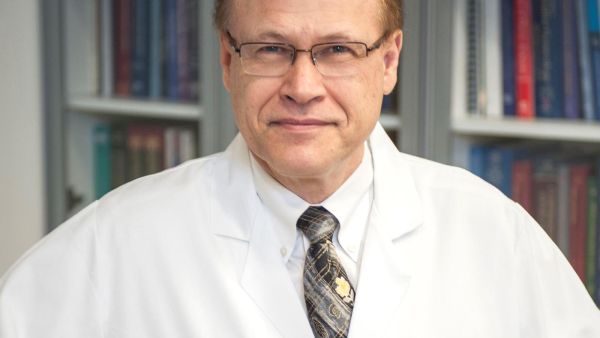Cleveland Clinic Expert Discusses Moral, Technical and Practical Aspects in New Field of Uterus Transplants to Feature at Arab Health

The field of uterus transplants is evolving rapidly after the first recorded birth post-uterine transplant from a live donor in 2015, and the first birth in North America and second worldwide from a deceased uterus donor last year at Cleveland Clinic in the U.S. However, as the procedure’s popularity spreads and more countries introduce their own programs, physicians are grappling with both ethical and practical considerations says an expert from Cleveland Clinic.
“It is estimated that globally there have now been around 70 transplants, and 20 babies born as a result of uterine transplants, giving hope to those women with a damaged or no uterus where previously they had only the option of adoption or surrogacy,” says Tommaso Falcone M.D., a researcher in the field of infertility and reproductive surgery who co-developed Cleveland Clinic’s uterine transplant program.
Dr. Falcone is part of the international Cleveland Clinic delegation of speakers at the Arab Health Conference taking place in Dubai this week.
His talk at the conference will include a review of the advantages and disadvantages of both living- and deceased-donor uterine transplants.
Dr Falcone says: “The drawbacks for the living donor include a lengthy surgery to remove the uterus, and a considerable recovery time; risks associated with the requisite hormonal replacement therapy (HRT); and mental health risks from dealing with the fact that the recipient might not be able to achieve pregnancy even after the transplant.”
He explains that while these complications are not an issue when taking the uterus from a deceased donor, this option is not without its own issues.
“In the case of a deceased donor, age becomes a factor as the donor cannot be given HRT to prepare for the transplant like a living donor can, so traditionally the deceased needs to be pre-menopausal. In addition, there are issues of consent and respecting the family’s viewpoint, and practical issues such as that there is less time for evaluation, management and scheduling in the case of a deceased donor.”
Dr. Falcone stresses that there are risks for the recipient with either type of donor, including complications, rejection of the uterus, and medications needed to suppress the immune system. In addition, we recommend that the uterus be removed after a maximum of two births, and not all women are eligible for the procedure.
Background Information
Cleveland Clinic Abu Dhabi
Cleveland Clinic Abu Dhabi is a unique and unparalleled extension of US-based Cleveland Clinic’s model of care, specifically designed to address a range of complex and critical care requirements unique to the Abu Dhabi population. Cleveland Clinic Abu Dhabi has five Centers of Excellence in the following Institutes: Heart & Vascular, Neurological, Digestive Disease, Eye and Respiratory & Critical Care. Other Institutes include Surgical Subspecialties, Medical Subspecialties, Emergency Medicine, Anesthesiology, Pathology & Laboratory Medicine, Imaging, and Quality & Patient Safety. In all, more than 30 medical and surgical specialties are represented at Cleveland Clinic Abu Dhabi.






